Remembering Taif Adzhba: The Life and Poetry of a Abkhazian Poet
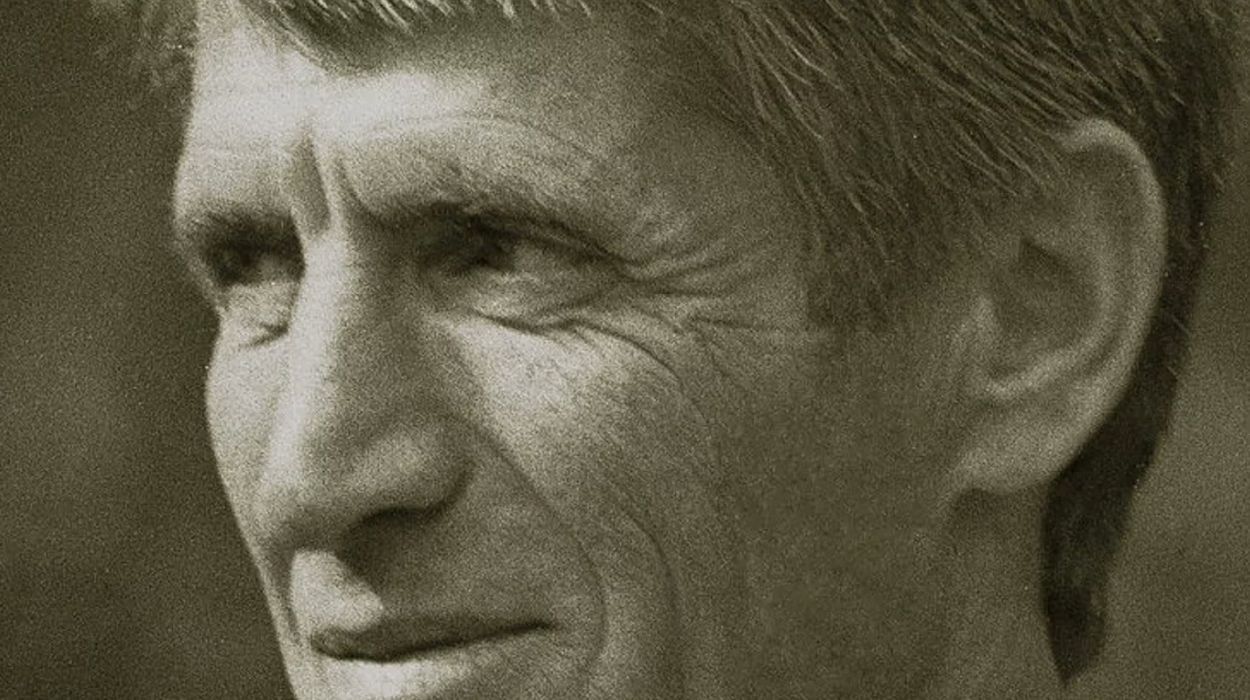
Taif Adzhba, Abkhazian poet: 11 March 1939 - 9 October 1992
Born on 11 March 1939, Taif Adzhba was a famous Abkhazian poet and recipient of the Dmitry Gulia State Prize. His fate is unknown after being taken from his home by Georgian guards during the Georgian-Abkhazian war of 1992-93.
Taif Adzhba, the author of more than ten collections of lyrical poetry, was honoured with the Dmitry Gulia State Prize in 1998 for his collection of selected poems and verse titled 'Blessing'. The collection was published in 1989 on the occasion of the author's 50th anniversary.
Taif Adzhba was born on 11 March 1939, in the village of Achandara, Gudauta region. After graduating from high school in his native village, he went to serve in the Soviet army.
The first poetry collection by the author, "Poems," was published in 1968, which became a significant event in the national literature, as the well-known literary critic Artur Anshba wrote.
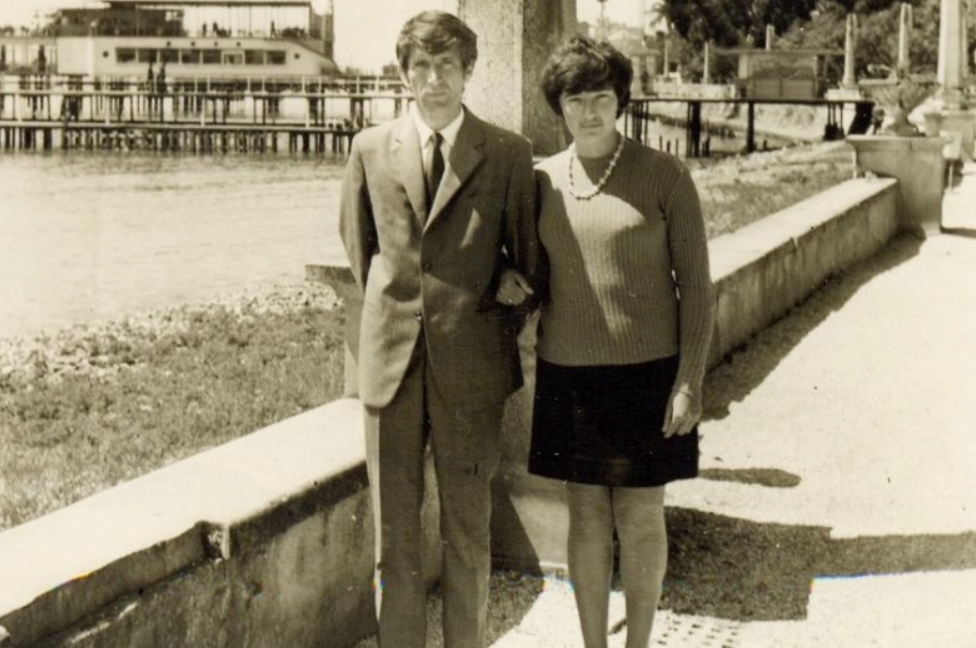
Taif Adzhba and his wife Rimma Kogoniya
In 1962, Taif Adzhba became a student of the philological faculty of the Sukhum Pedagogical Institute (department of foreign languages - ed.). In the same year, his poem Сыԥсадгьыл (My Motherland) appeared on the pages of the literary magazine "Alashara," and that marked the beginning of the author's path to readers.
After graduation, the poet worked in various roles, including in the editorial office of the newspaper "Аԥсны ҟаԥшь" (Red Abkhazia)," the book publishing house "Alashara," and the magazine "School and Life." He also served as a literary consultant in the Writers' Union of Abkhazia.
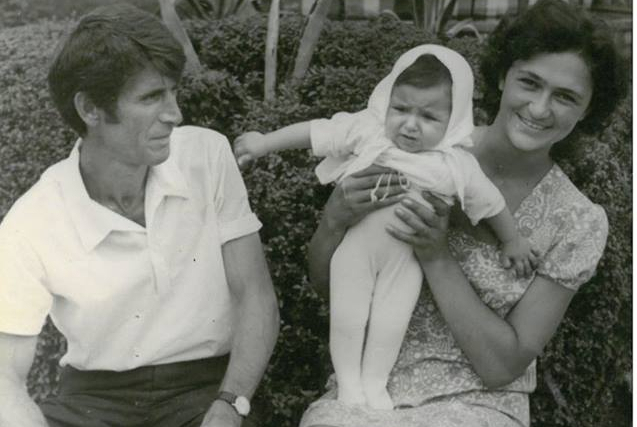
Taif Adzhba with his family
From 1983 to 1985, Taif Adzhba studied at the higher literary courses, during which he got to know and communicate with prominent writers of Russia. The publishing house "Soviet Writer" also published another collection of poems by Adzhba called "Second Life."
Taif Adzhba translated the immortal works of Alexander Pushkin, Mikhail Lermontov, Fyodor Tyutchev, Alexander Blok, and other Russian poets into the Abkhaz language.
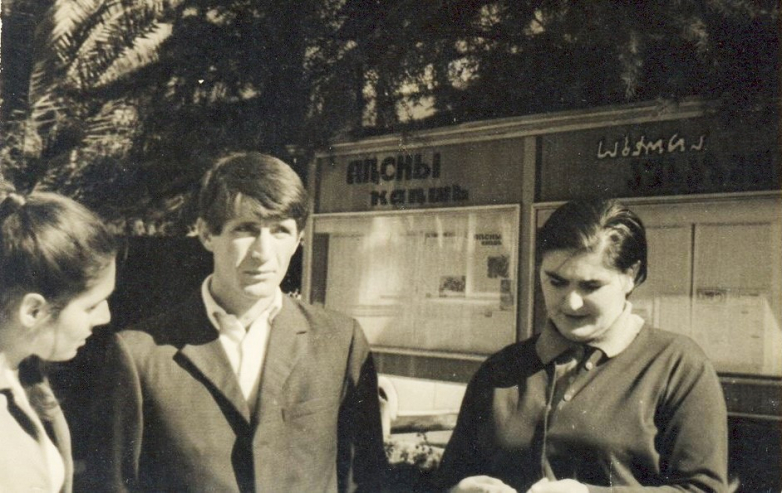
Taif Adzhba and poetess Nelli Tarba
+ The Disappearance of Taif Adzhba and the Amnesty International Report of 1993
+ Georgian Brutality and Local Support | 'Mobilizing in Uncertainty'
+ Testimonies: Georgian - Abkhazian War - Asarkial Human Rights Group
+ “Is it simple: to burn every day since dawn for everyone?”: in memory of Taif Adzhba
Life in Poetry
The famous Abkhazian scientist, Vladimir Agrba, spoke about the gentle nature of his friend, the poet Taif Adzhba, and how this trait is reflected in his work.
"From childhood, he had the talent to find the right words for everything he saw and wanted to express in poetic form. His lines are unusually harmonious and have a deep meaning," says the literary critic.
Assessing Taif Adzhba's contribution to the development of national literature, the scientist emphasized that he continued the traditions laid down by his predecessors, along with other authors of the second half of the 20th century.
"He had his own style and language. After reading Taif's poem, you immediately know who the author is. This speaks of exceptional talent and his unique handwriting," notes Vladimir Agrba.
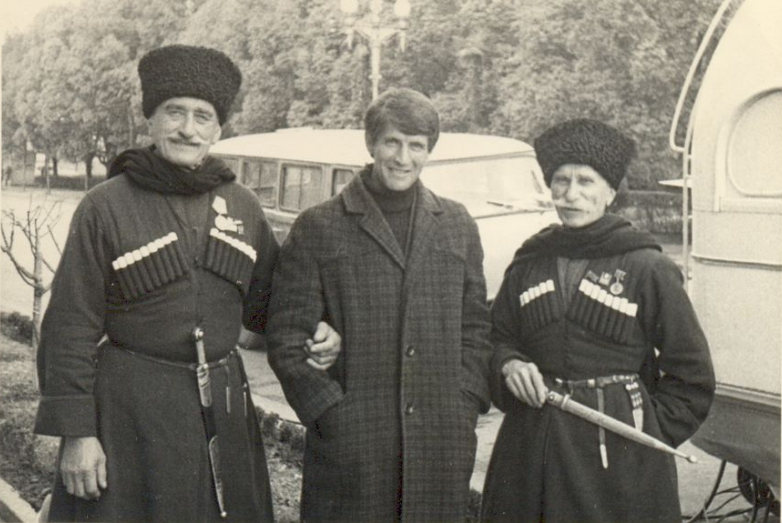
Taif Adzhba with Abkhazian elders
Taif Adzhba is considered a classic of Abkhazian children's literature. He wrote many poems that children truly love.
"From a professional point of view, all of Taif Adzhba's works, whether for children or written for the older generation, are of high quality. His poems and children's poems have become the golden fund of our literature," Agrba added.
War Diary
During the Patriotic War of the people of Abkhazia in 1992-1993, Taif Adzhba remained in the occupied Sukhum with his family. The poet began to keep a diary. "Survive until dawn" were the words he often repeated on the pages of his diary, which later became the title of a published book.
"On the 14th, at about one o’clock in the afternoon, at the Sukhum railway station, I got on the train - I decided to visit my people in Achandara. Alisa and Alyas were there. At the Achandara turn, I heard about the beginning of the war. The car that drove me also said that the war had begun. I tried to object to him too, saying that I should not believe any rumors. Upon arrival in Achandara, I was immediately told about what had happened - that it had been broadcast on television about the outbreak of war. I didn't believe it either."
This entry in the notebook was the last. Together with Taif Adzhba, three other men were taken away by the Georgian guards, including a family friend, Dzhota Amichba.
"Dzhota was wearing slippers when they took him away. I managed to break through to the bus in which they were sitting. Seeing me, he asked me to bring him shoes. I ran to their apartment on the fifth floor, where a search was already underway. Khashba fulfilled his request. She then reproached herself all her life that she sent him narrow shoes," recalled the poet's wife, Rimma Kogoniya.
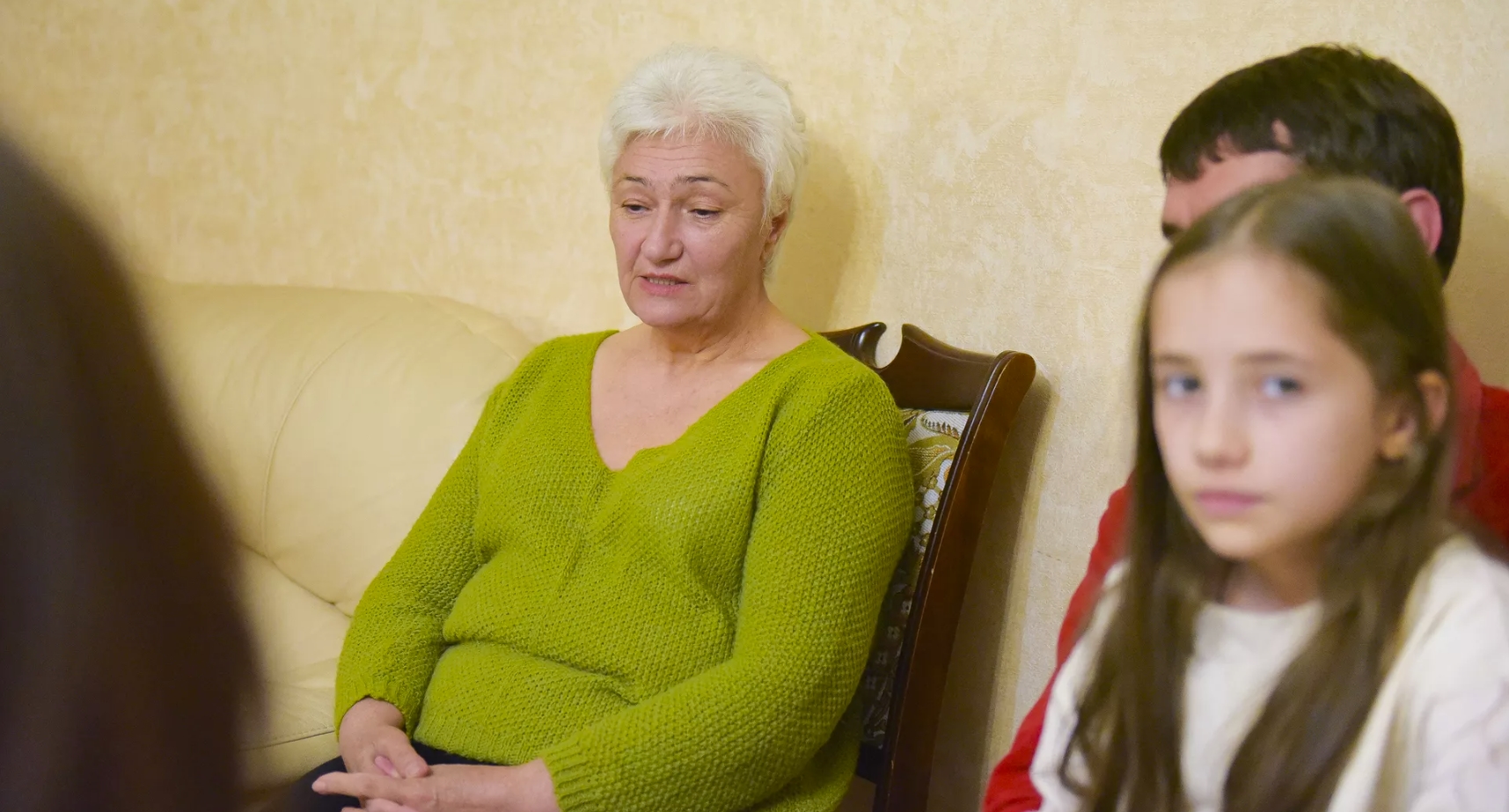
The widow of the Abkhazian poet Taif Adzhba, Rimma Kogoniya
For many months, Rimma Kogonia and Nelly Khashba hounded the thresholds of police stations and the military registration and enlistment office, trying to find out about the fate of their husbands.
"I also went to the so-called Salvation Committee to Lorik Marshania. It was located in the building of the Council of Ministers. I remember Marshania swearing that Ardzinba started building a house from the roof, and we support him at the same time. And then he replied that he didn't know who I was looking for," said Rimma Astamurovna.
She left Sukhum only in April. I received a letter from my daughter, which was handed to her by one of the parliamentarians participating in the negotiations. The girl asked her mother to stop her futile search and come to Achandara. According to unconfirmed reports, the Abkhazian poet Taif Adzhba was shot after prolonged torture. The place of his burial is still unknown.
"Of course, Taif Adzhba could have written many outstanding works, but the Georgian fascists did not allow him to do so. Garcia Lorca was killed by the Spanish fascists, and the fate of Taif Adzhba is similar to his fate. But those who killed Taif could not defeat his poetry; it lives on among the people," literary critic Vladimir Agrba emphasized.
Taif Adzhba was detained by the Georgian guards solely on the basis of his ethnic origin. He was taken to an unknown location, and it is not known whether one or more criminal charges were brought against him.